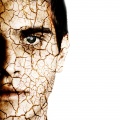Dehydration
Dehydration is the term used to describe a deficiency of water. A mere 2% drop in your body's water supply can trigger signs of dehydration. It is estimated that the majority of people are mildly or chronically dehydrated. Mild dehydration is one the most common causes of daytime fatigue.
Many people believe that thirst is the first sign of dehydration. Yet, typically if you are thirsty you needed water long before that. The older you are or the less healthy you are, the less you're able to sense that you're thirsty. On the other hand, excessive thirst and increased urination can be signs of a more serious medical condition. Talk to your naturopathic doctor if you experience either.
|
Dehydration | |
| Causes | Dietary Factors, Water, Sugar, Caffeine, Excessive Exercise |
|---|---|
| See Also | Other Conditions, Fatigue, Headache, Constipation |
| Books | Books on Other Conditions |
| Articles | Articles on Other Conditions |
Contents
Common Symptoms
The following are the common signs and symptoms of dehydration.
- Fatigue
- Lack of energy
- Headache
- Dry mouth
- Chronic pains in joints and muscles
- Lower back pain
- Constipation
- Little or no urination
- Muscle weakness
- Excessive thirst
- Dizziness
- Light-headedness
Causes of Dehydration
- Decreased consumption of water
- Foods and drinks high in sugar or caffeine
- Excessive alcohol
- Diets low in fruits and vegetables
- Excessive exercise
- Extreme temperatures – whether hot or cold
- Diuretics such as caffeine pills and prescription diuretics
- Specific diseases
Dehydration may be associated with any age, yet it appears to be more common in older adults.[1]
Associated Diseases
- Pain, whether headache, digestive, joint or muscle pain, is often due to acute or chronic dehydration. As a general recommendation – at the first onset of pain (if not due to injury or infection) drink water.
- Heartburn
- Arthritis or Rheumatoid joint pain
- Lower back pain
- High blood pressure.
- angina
- High cholesterol
- Diabetes
- Migraines and headaches
- Asthma
- Ulcerative Colitis
- Depression, loss of sex drive (libido), chronic fatigue syndrome, lupus, muscular dystrophy, and multiple sclerosis are all associated with prolonged dehydration.
- Cancer
- Decreased cognitive performance.[2]
Prevention and Treatment
To ward off dehydration and make sure your body has the fluids it needs, make water your beverage of choice. Most healthy adults can follow these tips:
- Drink 1/2 your body weight in ounces of water per day.
- Drink fluids slowly by constantly sipping throughout the day.
- Don't drink caffeinated drinks or alcoholic beverages, which can actually have a dehydrating effect.
- When flying in an airplane, drink plenty of water and avoid alcohol.
- Drink water before, during, and after exercise--slowly!
- Call your doctor if you have a temperature over 102 degrees Fahrenheit, or severe cramps.
- Carry a water bottle whenever possible, especially when participating in outdoor activities in warm weather.
- Remember that fluids can be lost through sweat as well as from diarrhea.
- Check with your naturopathic doctor to see if your symptoms or conditions alter your need for water.
Tips
Note
- Riboflavin, a B Vitamin, will make your urine bright yellow.
- Although uncommon, it is possible to drink too much water. When your kidneys are unable to excrete excess water or when the daily consumption of water is too high, the electrolyte (mineral) content of the blood is diluted, resulting in low sodium levels in the blood, a condition called hyponatremia. Endurance athletes, such as marathon runners, who drink large amounts of water, are at higher risk of hyponatremia. In general, though, drinking too much water is rare.
References
Reviewed by Iva Lloyd, BScH, RPE, ND [1]
- ↑ Bennett JA, Thomas V, Riegel B (Nov 2004) Unrecognized chronic dehydration in older adults: examining prevalence rate and risk factors. J Gerontol Nurs;30(11):22-8. PMID: 15575188.
- ↑ Kempton MJ, Ettinger U, Foster R, Williams SC, Calvert GA, Hampshire A, Zelaya FO, O'Gorman RL, McMorris T, Owen AM, Smith MS (Jan 2011) Dehydration affects brain structure and function in healthy adolescents. Hum Brain Mapp;32(1):71-9. PMID: 20336685.
